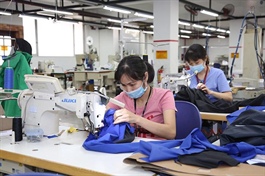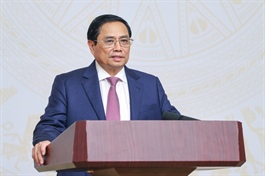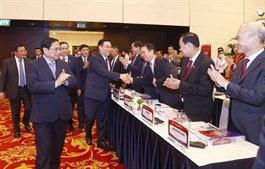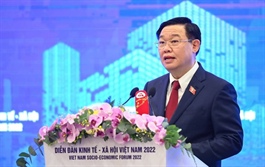Official points out risks to CPI during year-end period
Official points out risks to CPI during year-end period
Though inflation was under control in the past eight months, the economy still poses risk to the consumer price index (CPI) in the remaining months of this year and next year, said Director General of the General Statistics Office of Viet Nam (GSO) Nguyen Thi Huong.

In an interview recently granted to Vietnam News Agency, Huong said amid inflation in many countries worldwide due to the prolonged Russia-Ukraine conflict, the COVID-19 pandemic and disrupted supply chains, the Vietnamese Government took drastic measures to reduce petrol prices, stabilise electricity and water prices and tuition fees, and maintain reasonable interest rates. As a result, inflation was kept at 2.58 per cent in eight months of this year, easing pressure on input costs.
The Government, ministries and agencies directed localities to manage prices while a number of firms actively joined the price stabilisation programme to ensure the supply of necessities to people, especially food.
Pointing out risks that could potentially impact CPI during the remainder of this year and next year, Huong said the global material prices remain high which could push up prices of consumer products at home, thus exerting pressure on inflation.
The fuel prices are also likely to hike again due to the complicated Russia-Ukraine conflict and rising demand for energy in China when its economy is recovering from the pandemic.
At the same time, the supply of fertilisers and cereals used for animal feed production is falling, potentially leading to an increase in food prices.
Meanwhile, consumption demand is expected to rebound, especially tourism, entertainment and dining, she said.
According to her, the GSO suggested ministries, agencies and localities fully prepare food and necessities to meet public demand.
The Ministry of Agriculture and Rural Development must ensure the supply of pork, particularly during the year’s end while the Ministry of Industry and Trade and localities must stabilise prices.
The supply of fuel at home must also be guaranteed and the reduction of value added and special consumption taxes should be considered in case the global fuel prices bounce back.
The GSO also proposed boosting the production of other important input materials such as iron and steel, construction materials and animal feed.
The State Bank of Vietnam (SBV) was advised to continue directing an active and flexible monetary policy and combine with fiscal and macro-economic policies to control inflation and ensure the supply of capital to the economy, she said.




















